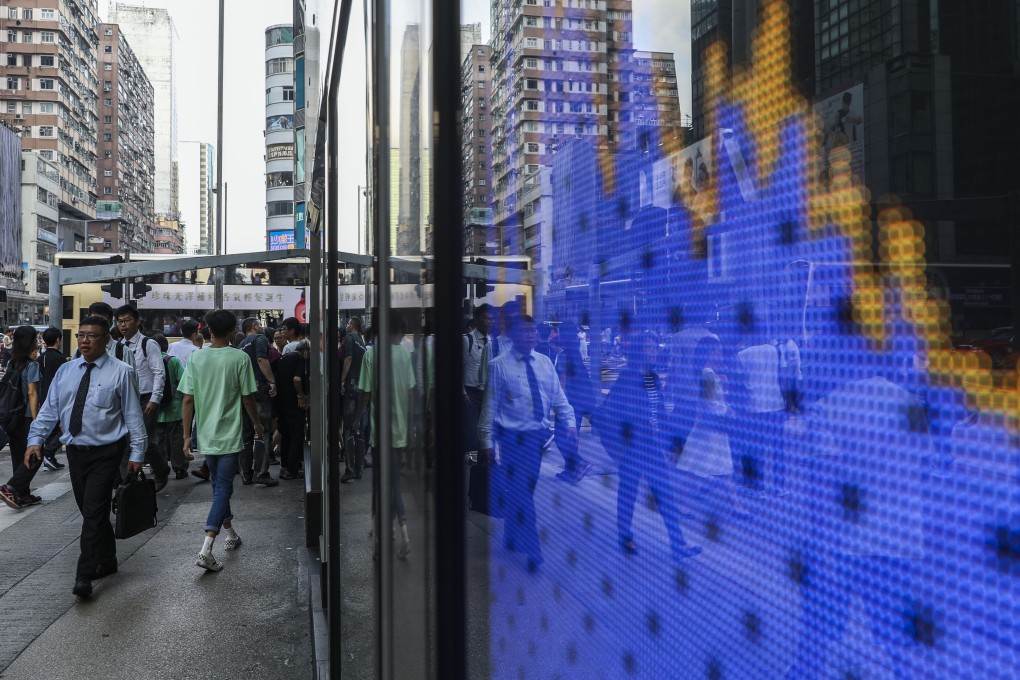Hong Kong stocks slide, Asian markets surrender gain as Fed’s biggest hike since 1994 reignites recession fears
- Hang Seng Index weakened with Asian peers following the biggest rate hike in the US since 1994, while the HKMA followed in lockstep
- Most Hong Kong developers slumped while tech stocks failed to keep gains amid recession concerns

The Hang Seng Index dropped 2.2 per cent to 20,845,42 at the close of Thursday trading, after earlier logging as much as a 1.1 per cent gain. The Tech Index slid 3.3 per cent, while the Shanghai Composite Index declined 0.6 per cent. The MSCI Asia Pacific Index lost 0.5 per cent, reversing a 1.5 per cent rally, according to Bloomberg data.
“The Fed’s monetary tightening is not without recessionary risk,” brokerage Chares Schwab said in a statement. “Ten out of the previous 13 rate-hike cycles have been associated with recessions. The present risk of a downturn increases when you consider the myriad pressures on growth, including Russia’s invasion of Ukraine, supply shortages, and inflation.”
Selling pressure increased in late trading, punishing Chinese tech stocks from winning positions. Alibaba Group Holding retreated 3 per cent to HK$102.40. NetEase sank 5.3 per cent to HK$154 and Meituan lost 4 per cent to HK$189.20. Tencent weakened 3.2 per cent while JD.com fell 1.7 per cent.